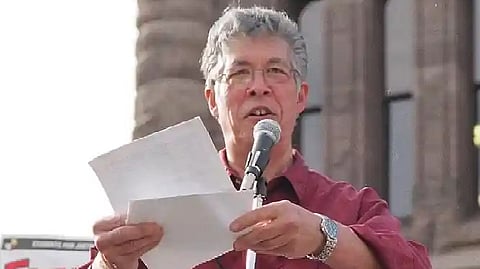Thomas KingImage courtesy of Wikipedia
Opinion
RUBENSTEIN: From revered indigenous storyteller to ‘pretendian’ — Thomas King’s fake indigenous identity crisis sparks backlash
King’s claim of Cherokee ancestry crumbles amid mounting evidence, forcing a reckoning for Indigenous communities and the literary world.


